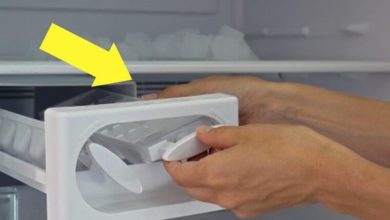There is one thing you must unplug every time it rains or thunders

When heavy rain pours down, and thunder rumbles loudly, there’s a crucial step you should always take to keep your home and valuable electronics safe: you must unplug certain items every time it rains or thunders. This might seem like a small detail, but it can make a big difference in protecting your belongings from unexpected electrical events.
It’s true that “the weather is thrilling when thunder roars and lightning strikes.” The dramatic display of nature can be captivating. However, it’s also a time when your home’s electrical system can become a pathway for dangerous power surges. These surges are sudden, powerful bursts of electricity that can travel through your wiring and wreak havoc on anything plugged in. Understanding the importance of disconnecting specific devices during these stormy conditions is key to keeping yourself and your expensive electronics safe from harm.
The Critical Need for Unplugging
You might wonder why unplugging is so important, especially if a lightning bolt doesn’t directly hit your house. The truth is, “it’s not necessary for lightning to hit your house directly to cause damage.” Even a lightning strike that occurs nearby can generate a powerful surge. This surge can then travel through power lines, into your home, and disrupt or even destroy any devices that are connected to an electrical outlet. While “surge protectors provide some protection,” it’s vital to remember that “they cannot completely withstand the tremendous force of surges caused by lightning.” They offer a good first line of defense, but for truly powerful surges, unplugging is the most reliable method.
Essential Devices to Unplug During a Storm
As a storm approaches and the skies begin to darken, make it a top priority to unplug the following devices. This simple action can prevent costly repairs or replacements:
-
Televisions and Home Entertainment Systems: These devices are especially vulnerable because “they are constantly connected to power and signal lines.” This means they have multiple ways for a surge to reach them, making them a high-risk item during electrical storms. Unplugging them disconnects both the power and any incoming signal cables (like those for cable TV or internet).
-
Computers and Charging Devices: Your computer holds valuable data and is an expensive piece of equipment. Similarly, your phone, tablet, and laptop chargers are sensitive. It’s always best to “disconnect your devices to safeguard your data and hardware.” This includes laptops, desktop computers, printers, and any charging cables plugged into outlets.
-
Kitchen Appliances: Many common kitchen items are powered by electricity. Toasters, coffee makers, and microwaves are frequently used, but they can be damaged by a surge. “To avoid damage, unplug toasters, coffee makers, and microwaves” as a precautionary measure.
-
Laundry Machines: Your washing machine and dryer, while robust, are also susceptible to power surges. “Power surges can affect dryers and washing machines,” potentially leading to expensive repairs or even needing a replacement.
-
Smart Home Devices and Networking Equipment: In today’s connected homes, we have many devices that are always on. “Unplug smart speakers, routers, and other devices that are connected to your home.” This includes Wi-Fi routers, smart thermostats, security cameras, and any other internet-connected gadgets.
It’s highly advisable to disconnect these gadgets prior to the storm’s arrival. Once you start hearing thunder or seeing lightning, “keep your hands away from electrical outlets once lightning is present.” At that point, it becomes much riskier to interact with electrical systems.
Additional Safety Measures to Consider
Beyond unplugging, there are other important steps you can take to enhance your home’s electrical safety during storms:
-
Put Surge Protectors in Place: While not foolproof against massive lightning strikes, “They provide an extra degree of security, but they are not infallible.” High-quality surge protectors can help protect against smaller, more frequent power fluctuations that can still be damaging over time. Look for ones with a high joule rating.
-
Whole-House Surge Protection: For the most comprehensive protection, “To safeguard your home’s electrical system, think about hiring a qualified electrician to install a system.” These systems are installed directly into your electrical panel and protect all circuits in your home from external surges, offering a significant layer of defense.
-
Frequent Electrical Inspections: It’s a good idea to have a professional check your home’s electrical system periodically. “Verify that the grounding and wiring in your house are modern enough to withstand any surges.” Proper grounding is crucial for safely dissipating electrical surges and protecting your appliances. An updated electrical system is generally more resilient.




